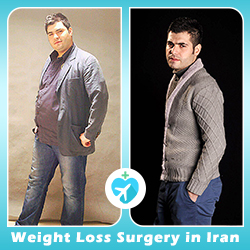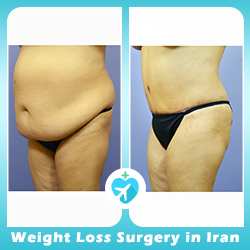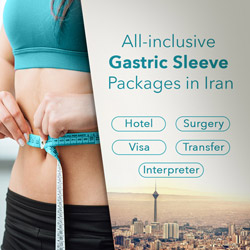Gastric sleeve surgery is the most common bariatric surgery which delivers great weight loss results for obese people who are unable to keep down their weight with diet and exercise. As a fast and effective solution to the problem of obesity, gastric sleeve is performed on thousands of obese patients across the world every day.
If you too are planning to undergo a sleeve gastrectomy anytime soon, chances are you’re looking for tips on preparation and information about gastric sleeve surgery requirements. In this article, you’ll read how to get ready for a sleeve gastrectomy procedure.
Before that, let’s learn about what gastric sleeve surgery is and how it works.
Quick facts:
- Good candidates for gastric sleeve surgery are those with a BMI above 35 or above 30 with a weight-related issue.
- Understanding yourself and your expectations is the first step in preparing for gastric sleeve surgery.
- Gastric sleeve is not for ‘lazy’ people. You should be committed to maintaining a healthy lifestyle after the surgery to get the most out of it.
- You should prepare both physically and mentally for gastric sleeve surgery.
- You should follow a strict diet to get physically prepared for gastric sleeve surgery.
- Gastric sleeve surgery may create emotional challenges for you, for which you should be mentally prepared.
- You need to stop smoking and alcohol before gastric sleeve surgery
- It is very important to be honest with the surgeon during the consultation appointment in order to have a successful surgery.
What is gastric sleeve?
Gastric sleeve, also called sleeve gastrectomy, is a weight loss surgery in which a large portion of the stomach is permanently removed to get the size of the stomach reduced to about 15-20 percent of its original size.
The procedure aims to make the stomach much smaller so that the individual feels full after having a small amount of food, resulting in lower calorie intake and consequently, weight loss.
Sleeve gastrectomy is done under general anesthesia and using the minimally invasive laparoscopic technique (keyhole surgery).
The surgeon makes tiny incisions on the stomach and inserts a laparoscope (a device used to see the inside of the body) and other instruments to do the operation. During the surgery, the patient is asleep and doesn’t feel anything because it is done under general anesthesia.
Further reading: Top 7 Things to Know About Gastric Sleeve Surgery
Who is a good candidate for gastric sleeve?
Gastric sleeve is typically done for patients with a BMI above 35 or those with a BMI above 30 and weight-related health conditions such as high blood pressure and diabetes.
Apart from that, based on your medical records and your family history of obesity, specialists may or may not recommend gastric sleeve surgery for you. If obesity runs in your family or you have a chronic problem that is directly related to your weight, you are a better candidate for a gastric sleeve compared to procedures like gastric balloon or lap band.
It is also very important to understand your expectations and get a good understanding of the results of a gastric sleeve before having the surgery. This effective bariatric procedure helps you lose 70% of your excess weight within a year and you can maintain your ideal weight afterward by following a healthy and active lifestyle.
That said, if you are a habitual snacker, you may have a hard time maintaining the right weight even after gastric sleeve surgery. So in case you’re really determined to have a healthy lifestyle after your sleeve gastrectomy, you should go for it.
Raring to go? Here is what you need to do before having a gastric sleeve surgery.
Gastric sleeve surgery preparation requirements
When you decide to have a gastric sleeve surgery, you’ll probably look forward impatiently to seeing your new body in the mirror. Yet, as the surgery day approaches, you have to get physically and mentally ready for the surgery and the life after it. Preparing for gastric sleeve surgery has several aspects.
One) Diet before gastric sleeve
If you have obesity, it is highly likely that there are fat accumulations in and around your liver, which makes it larger than usual, making the surgery harder for the surgeon. Therefore, one of the preparatory steps you should take before your gastric sleeve is to follow a strict diet, beginning at least two weeks before the surgery date.
The diet, which should be approved by a specialist, should be low in calories, and carbohydrates like sweets, pasta, and potatoes. It should include lean protein, vegetables, and fluids with very low calories. Your specialist may set a daily calorie goal for you to stick to for a few weeks before surgery.
It is recommended that you switch to a clear liquid diet two days before surgery. This can include water, broth, decaffeinated coffee or tea, no-sugar protein shakes, jelly, and sugar-free popsicles. Carbonated and caffeinated beverages are not allowed.
Two) Having realistic expectations and adapting to the change
Contrary to what most people think, weight loss surgery is not for ‘lazy’ people. With a gastric sleeve, you’ll have a smaller stomach that holds less food, helping you to control your food intake and lose weight as a result.
However, if you have a habit of overeating, the stomach can stretch and get enlarged gradually, reversing the positive effects of the surgery.
Also, if you can’t help nibbling on high-calories foods after surgery, gastric sleeve can’t be the ideal weight-loss method for you because you will be getting calories all the time by simply snacking.
So, when preparing for gastric sleeve surgery, be sure to assess your determination to make big lifestyle changes as well. Begin by debunking some popular myths about weight loss surgery.
The success of a gastric sleeve requires that you change your eating habits and work toward a more active lifestyle with more time spent on exercising. Therefore, as you prepare for gastric sleeve surgery, you should also prepare for new dietary habits and a new lifestyle.
Three) Anticipating emotional issues
Eating is a great way to enjoy life, deal with stressful situations, and hang out with friends. After gastric sleeve surgery, you might miss out on the simple pleasure to some extent. This may cause some emotional problems for you and create a void in your life.
An important gastric sleeve requirement is to anticipate this problem before having the surgery so that you are more prepared to cope with it. You should think of healthy ways to fill the gap and be careful not to turn to other unhealthy options such as alcohol and drugs.
The frequent bouts of depression that may affect you following the surgery due to the eating restrictions can be dealt with by engaging in entertaining activities.
The big change in your body also makes it more likely to have instability in your relationships. Finding out that you were discriminated against while you were obese might also give you a feeling of resentment.
You may also have to take the stress of affording the costs of changing your clothes after weight loss. We recommend that you see a psychologist and seek help to emotionally prepare for gastric sleeve surgery and the new life afterward.
What else to consider while preparing for gastric sleeve
Here are a few tips to follow before a gastric sleeve surgery in order to have a successful experience:
- Stop smoking a few weeks before surgery (as nicotine increases the risk of complications during and after surgery and slows down the healing process)
- Stop consuming alcohol at least one week before surgery.
- Inform your doctor of any drugs and supplements you are currently taking and stop or replace them with other drugs prescribed by your doctor if needed.
- Do not eat any solid food after 8 pm and liquid after midnight because your stomach should be empty for the operation. This may vary depending on your surgeon and the time of surgery. Be sure to follow your doctor’s instructions in this regard.
- Prepare the items of your hospital checklist, including comfortable clothes, medicines, etc.
- Arrange for someone to accompany you to the hospital, take care of you after surgery, and drive you home after leaving the hospital.
- Get your home well-organized and finish all your household tasks before going to the hospital so that you won’t have unfinished tasks upon your return when you need to relax.
Pre-op consultation: a time to get everything cleared up
A vital gastric sleeve surgery requirement is the pre-operative consultation appointment you have with your surgeon before the surgery. This consultation session is a great opportunity to ask all your questions about everything related to the surgery.
You should frankly discuss your expectations, concerns, and questions with the surgeon, including the risks and side effects of the surgery, the expected amount of weight loss, and the recovery.
Your surgeon also asks you questions about your medical history and any previous surgery you might have had. It is very important to be straightforward with the surgeon and provide him/her with every bit of information he/she needs.
Last word
Gastric sleeve is both a major surgery and an influential decision. For this reason, it is crucial to get well prepared before going under the knife.
Preparing for gastric sleeve doesn’t have a one-size-fits-all approach. Different doctors and hospitals give their own instructions to patients.
What’s more, you should follow your doctor’s and hospital’s guidelines to get ready for your surgery. Therefore, what you read in this article is for informational purposes only and shouldn’t be construed as medical advice.
If you need more detailed information about gastric sleeve surgery and how to prepare for gastric sleeve surgery, please feel free to contact us. Our medical consultants will get back to you as soon as possible to help you with your questions.














